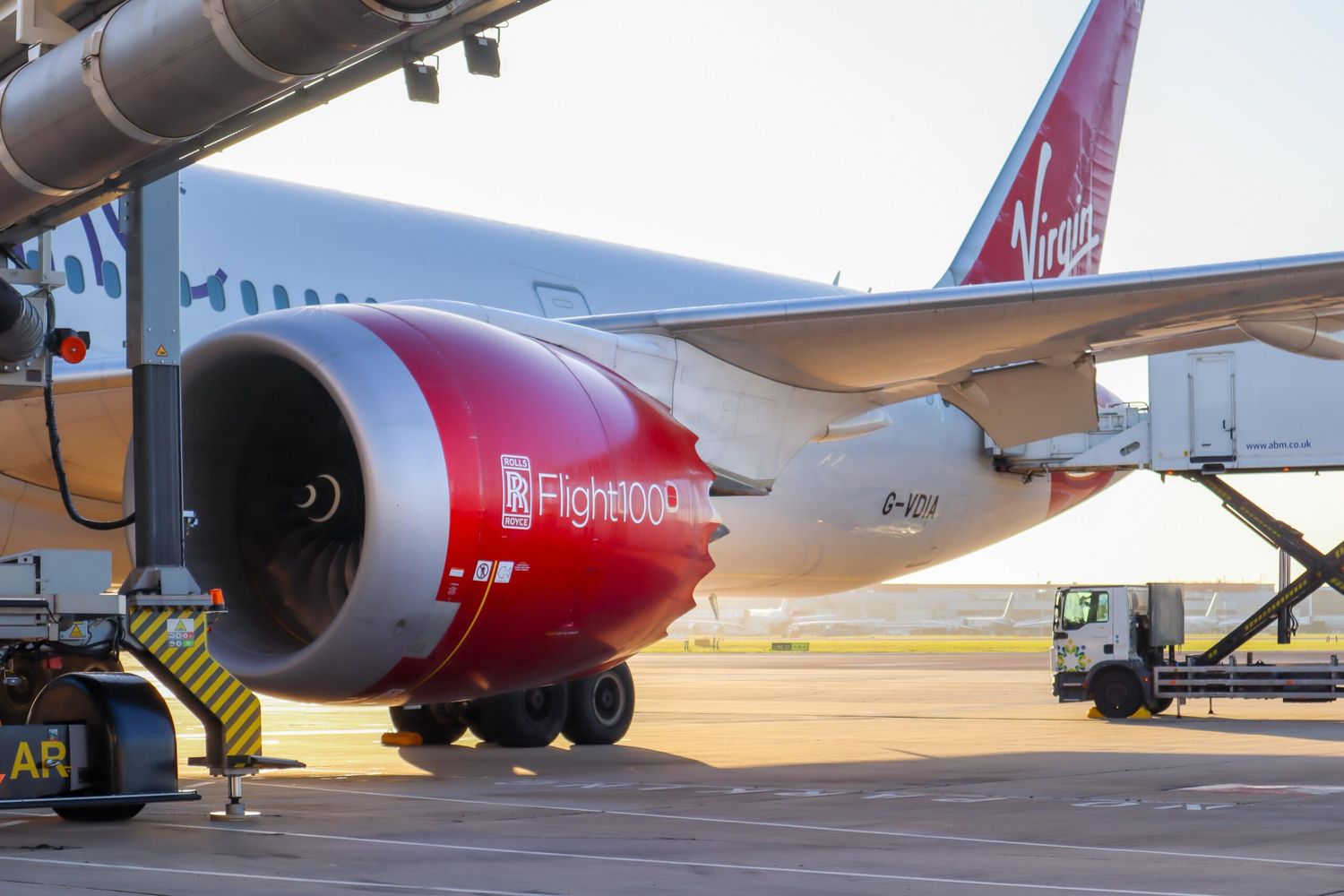SAF takes off: Virgin Atlantic makes the first commercial flight using 100% sustainable fuel
On November 28, the Virgin Atlantic flight VS 100 embarked from London/Heathrow to New York’s John F. Kennedy Airport. This marked a significant milestone as the first commercial flight powered entirely by 100% sustainable aviation fuel (SAF). The initiative demonstrates SAF’s potential as a viable market product in the aeronautical industry. It also highlights its capability as a safe alternative to traditional fossil-based aviation fuels, ensuring compatibility with current aircraft engines, structures, and fuel systems.
As the global aeronautical industry progresses towards Net Zero emissions by 2050, SAF emerges as a key player. Derived from waste products, SAF can reduce CO2 emissions by up to 70% over its lifecycle, offering a direct substitute for conventional aviation fuel.
While advanced technologies such as hydrogen-based propulsion and electric engines are still decades away, SAF represents a feasible solution in the short to medium term. Current regulations permit mixing SAF with traditional fuel, up to a 50% blend, though it currently accounts for less than 0.1% of global aviation fuel usage.
Flight 100 seeks to emphasize the challenges in scaling up SAF production. This requires prompt action and collaboration in policy-making and investment from both the industry and government sectors to build a thriving SAF industry.
Achieving the 2050 Net Zero goal necessitates a commitment to innovation and investment across all available materials and technologies. This will maximize SAF production and facilitate ongoing research and development towards zero-emission aircraft.
In addition to showcasing the efficacy of SAF, Flight 100 will also assess its impact on carbon emissions during flight. This project, supported by consortium partners including ICF, Rocky Mountain Institute, Imperial College London, and the University of Sheffield, aims to improve scientific understanding of SAF’s environmental impact. Findings and data from this research will be shared across the industry.
The SAF used in Flight 100 is a distinct blend of 88% hydroprocessed esters and fatty acids (HEFA) from AirBP and 12% synthetic aromatic kerosene (SAK) from Virent, a Marathon Petroleum Corporation subsidiary. HEFA is sourced from residual fats, while SAK is derived from plant sugars, keeping the remaining plant proteins, oils, and fibers within the food chain.
Reflecting on the journey since Virgin Atlantic and Boeing’s first SAF test flight in a 747 in 2008, this latest achievement using a 787 Dreamliner represents a significant step towards Virgin Atlantic’s commitment to 100% SAF-compatible aircraft by 2030, as highlighted by Boeing’s Vice President of Environmental Sustainability, Sheila Remes.
To realize the 10% SAF target by 2030 in the UK, industry and government must work collaboratively to establish a robust SAF market. This effort is not just environmentally crucial but also promises substantial socio-economic benefits, including an estimated £1.8 billion addition to the UK’s gross value and the creation of over 10,000 jobs.
Shai Weiss, CEO of Virgin Atlantic, emphasizes the current shortfall in SAF availability and the need for greater investment. He advocates for regulatory certainty and supportive pricing mechanisms, underpinned by a strong commitment from both the industry and government, to scale SAF production effectively.


Para comentar, debés estar registradoPor favor, iniciá sesión